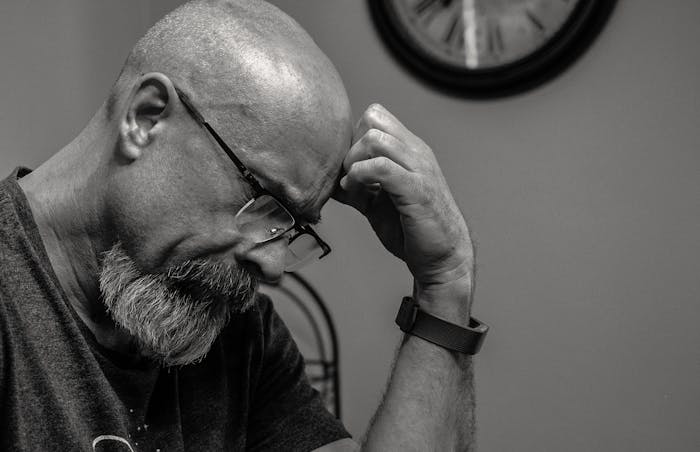Link Between Suicidal Ideation and Addiction
Suicidal ideation – sometimes also referred to as suicidal thoughts – is when an individual considers taking their own life.
This is an important topic to cover when considering the field of addiction, as suicidal thoughts can be experienced as a result of addiction or other associated effects.
This is why all sources of support for addiction also support thoughts of suicide or suicidal ideation within individuals.
Though it is often hard to talk about these topics, especially when it is relating to oneself or someone you know, it is important to be honest and open when seeking help as this will aid professionals in giving the most suitable and effective advice when it comes to seeking rehabilitation.
This blog post will further explore suicide ideation and its links and connections to addiction, as this is an important factor to consider, no matter whether it is personally relatable or not.
The impact of suicidal ideation on an individual

As can be imagined, the impacts of suicidal ideation on an individual can be incredibly taxing, both physically and mentally.
This is because the individual who is experiencing suicidal ideation will be having deep and macabre thoughts – something which can significantly affect individuals, regardless of having these thoughts regularly or not.
Suicidal ideation is a heavily complex topic across all its associated factors, including definition, diagnosis and the nature of the typical sufferer.
Most studies into suicidal ideation [1] state that there is no official definition, no reliable way of diagnosing suicidal ideation, and no one typical type of person who is more likely to experience it than another.
These factors are still very much up for debate.
However, there are some factors that can be agreed on. In general, there are two forms of suicidal ideation – passive and active – and these are outlined in the following subheadings.
1. Passive suicidal ideation
Passive suicidal ideation is, as the name suggests, when an individual may consider suicidal thoughts or actions, but with no desire or urge to carry out these plans in any way to harm themselves.
This may be considered similar to some specific mental health issues, but is in fact an issue in itself, meaning that it is something that individuals should be aware of.
Just because the individual is not acting on these thoughts or ideations directly, it can still be harmful to their physical and mental wellbeing if they are regularly experiencing these thoughts.
In addition, addiction is known to be a disorder which can worsen in a short space of time, meaning that an individual’s passive suicidal ideation may begin to switch to more active thoughts depending on the other factors associated with their addiction.
In all cases, any individual who experiences any of these thoughts should feel supported to contact Rehab Recovery or any other source of support. This is something that should not be covered up or expressed during rehabilitation and no one should be made to feel ashamed for feeling these specific symptoms.

2. Active suicidal ideation
Active suicidal ideation is when an individual is directly influenced by their ideations to form a plan of self-harm, most often with the means to carry it out.
In some cases, just making a plan such as this can put some individuals’ ideations at ease, but in other cases this may be taken further.
Individuals who experience active suicidal ideation often require emergency treatment, and any individual experiencing this should speak about it to a medical professional as soon as they are able.
This is to reduce potential future harm and to help the individual progress through therapy and other treatments in order to overcome this.
Again, these effects are nothing to be ashamed of. Just because an individual experiences these ideations does not mean that they are any less deserving of care and support to see them safely through these issues and beyond.
Co-occurring mental health issues and addiction
In many cases, suicidal ideation may be considered to be a mental health issue in itself and not just a co-occurring effect.
In regard to this, suicidal ideation can be considered as a co-occurring mental health effect alongside addiction.
This is when two or more mental health disorders are present within one individual, and both have effects on their general well-being.
This is sadly very common among individuals struggling with addiction.
Common co-occurring mental health issues with addiction include:
- Depression
- Anxiety
- Bipolar disorder
- Schizophrenia
- Borderline Personality Disorder (BPD)
- Attention Deficit Hyperactivity Disorder (ADHD)
- Post-Traumatic Stress Disorder (PTSD)
Suicidal ideations can be expressed in addition to all of these.
During rehabilitation, it is vital that individuals seek treatment in a dual diagnosis setting i.e., one that caters to both or all of the mental health disorders that an individual has disclosed or shows symptoms of.
This is typical of support and treatments recommended through Rehab Recovery, as we believe the dual diagnosis approach to be the most effective and efficient when it comes to the treatment of addiction.
This is also reflected in multiple sources of research, most of which focus on the importance of including the dual diagnosis approach within rehabilitative care. [2]
How addiction can lead to suicidal ideation

Every individual’s experience of addiction will be different.
This is because every individual will have a different history of substance use, different substance(s) that they are addicted to, and personal differences that will affect their body’s processing of these substances.
Because of this, some individuals may experience suicidal ideation, and some may not.
This is very much a factor in the individual’s specific circumstances and situation, as the development of these issues may not always occur.
Predicting whether or not someone may experience suicidal ideation as a result of addiction is also difficult, if not impossible to predict, further highlighting the importance of being honest and open when seeking suitable rehabilitation for yourself or for someone you know.
Why individuals should seek help for addiction

As mentioned previously in this blog, addiction is a disorder that can quickly and exponentially worsen for an individual, both in terms of its impact on the individual directly, and also on the people and environment around them.
If an individual were to continuously and regularly partake in addictive behaviours, the effects to their body would accumulate over time, meaning that they can become extremely detrimental to the individual’s health very quickly.
Physically addictive substances are especially dangerous to an individual as the longer and more regularly that they are present within the body, the harder it will be for the individual to withdraw from these substances, as their body is now dependent on these substances in order to function in their everyday life.
This is why it is vital to seek rehabilitative care as soon as the individual is able to.
This will enable medical professionals and addiction specialists to have the most time to help the individual recover – something which is made significantly more difficult with time.
Finding drug and alcohol rehab that is suitable
If an individual is seeking treatment through drug and alcohol rehabilitation, then knowing where to start can be incredibly difficult and daunting for many people.
This is mainly due to the sheer amount of information and choices when it comes to recovery, though other factors may also come into play.
This is where Rehab Recovery can help.
When contacting our team to start to start a rehabilitation programme, these individuals will be asked a number of questions to ascertain their individual and specific needs for care.
Some of the most commonly asked questions are listed below:
- What substance(s) do you struggle with an addiction to?
- What is your history with substance(s) and addiction? (i.e., period of time struggling with a substance use disorder)
- Have you previously attempted to rehabilitate?
- What is your situation with your current place of residence/people you live with?
This list is not extensive, and not all individuals may need to answer all of these questions, but it is always important that individuals are completely honest and detailed with their answers.
By answering these questions openly and honestly, individuals will be able to communicate with Rehab Recovery more effectively and clearly, meaning that they are far more likely to receive beneficial and effective advice for their drug or alcohol rehab journey.
How to talk to someone about suicidal ideation

As this is a difficult topic to approach with many individuals in many different situations, it is no surprise that this is often made more difficult with the addition of addiction as well.
This is because individuals struggling with addiction often feel ashamed or embarrassed of their situation, regardless of other factors that may be influencing this.
This is why approaching the topic with caution, empathy and sensitivity is essential, whether this is when an individual seeking help for themselves or when a friend or family member chooses to approach the topic.
The following subheadings outline some key advice when it comes to speaking and expressing thoughts about suicidal ideation and its effects on an individual, as well as how this may impact those involved.
1. From an individual’s perspective
When an individual is seeking help for their own addiction and also experiences suicidal ideation, then they should ensure that this is mentioned and acted upon as soon as possible.
As mentioned previously, passive ideation can potentially become active ideation if enough time passes without intervention or support, meaning that it should be mentioned as soon as possible.
This is not a weakness, nor should it be considered a ‘moral failure’ of the individual, and neither should addiction.
Mental health is a complex topic in the modern world, and it is not something that is fully understood.
No one should feel ashamed speaking about these issues, especially when it comes to an individual’s health and well-being.
2. From a friend or family’s perspective
From an outsider’s perspective, however, this can be slightly more complex when trying to approach the topic of suicide ideation.
A common reaction to addiction is to deny its existence, meaning that individuals struggling with this disorder can often become secretive and hide their addictive behaviours, meaning that they may deny any additional effects that they may be experiencing.
If this is something that you have noticed in someone you know, then approaching the topic with the utmost of sensitivity and empathy is recommended and no one should be forced to speak about something that they do not want to, as this will likely worsen the situation.
In these cases, time may be the best solution, though being aware of the individual’s condition is also essential and should be considered in emergency situations.
Interventions are another way to deal with this situation, though this should also be cautiously approached and considered before causing any irreversible offence or rifts in relationships.
The three key stages of rehabilitation

When an individual seeks rehabilitative care through Rehab Recovery, they are guaranteed to undergo three rough stages of recovery – the most effective approach to rehabilitative care.
These three stages are briefly outlined across the following points:
- Detoxification – this is where the individual will withdraw from the substance(s) that they are addicted to. This can be aided with medical interventions if needed (in the case of physically addictive substances such as alcohol and heroin, for example). This physically prepares the individual for the next stages of care.
- Rehabilitation/therapy – this is the bulk course of treatment that an individual will receive when they are undergoing drug and alcohol rehabilitation. During this stage, individuals may take part in a number of different and specialised programmes for them including individual counselling, group therapy, Cognitive Behavioural Therapy (CBT) and holistic treatments – though this will differ in each case depending on the specific drug and alcohol rehab in question and the needs of each patient.
- Aftercare – this is arguably the most important stage of care, as it facilitates the individual’s ongoing learning and recovery after leaving drug and alcohol rehab, while also supporting their return to independence and a new way of living.
How Rehab Recovery can help you today with addiciton and suicidal ideation

Rehab Recovery is committed to helping individuals of all backgrounds and needs find the most suitable and appropriate form of recovery for them.
This includes those battling both addiction and suicidal ideation, which is sadly a very common problem.
Through our team of friendly, professional and confidential staff, an individual will receive the best advice for them or for someone that they know, as long as they maintain honesty and openness throughout the entire rehab recovery process.
To find out how we can help you with any addiction-related issues, please contact our addiction support line on 0800 088 66 86 today.





